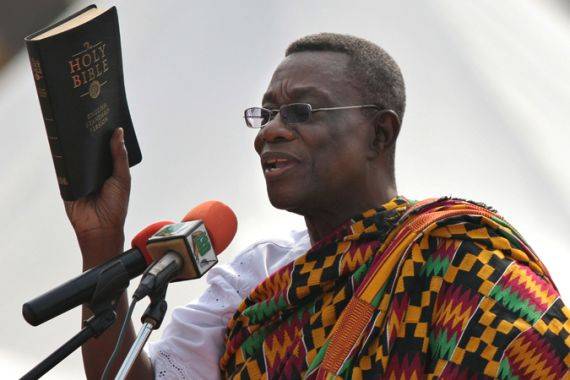John Atta Mills, the former President of Ghana, passed away in 2012. He was buried at Asomdwee Park in Accra, a place intended to honor his memory. However, over the years, controversy arose regarding the condition and management of his grave, leading to public concern and debate.
After Atta Mills was buried, his grave site quickly became a place of national importance. Many Ghanaians and tourists visited to pay their respects. However, as time passed, the condition of the site began to deteriorate. Reports surfaced that the area was not being maintained properly. Weeds grew around the grave, and the general environment did not reflect the respect and dignity expected for a former president.
In addition to maintenance issues, there were concerns about security at the site. There were incidents of vandalism and theft, with items being taken or damaged. This lack of security upset many people, who felt that a site of such significance should be better protected.
The state of Atta Mills' grave became a topic of national discussion. Many Ghanaians expressed their disappointment and called for action to preserve the dignity of the site. The media covered the issue extensively, prompting a wider debate about how the country should honor its past leaders.
In response to public outcry, the government and various organizations pledged to improve the situation. Renovations were proposed to restore Asomdwee Park to a fitting standard. This included landscaping, installing security systems, and creating a more structured environment for visitors.
Efforts were made to renovate the site and address both the maintenance and security issues. These efforts aimed to transform Asomdwee Park into a proper national monument that reflects the respect due to Atta Mills.
This controversy highlights the importance of preserving historical sites and honoring national leaders. Atta Mills was a respected figure who contributed significantly to Ghana's development. Ensuring that his resting place is maintained properly is a way to show gratitude and respect for his service.
Moreover, this situation underscores the need for a broader conversation about how Ghana preserves its historical and cultural heritage. It serves as a reminder of the responsibility to future generations to maintain and protect places of national significance.
REMEMBERING ATTA MILLS: SEE THE CONTROVERSY THAT POPPED UP ABOUT HIS GRAVE
July 24, 2024
1 year ago
Comments (0)
Be respectful and constructive in your comments.




No comments yet
Be the first to share your thoughts!